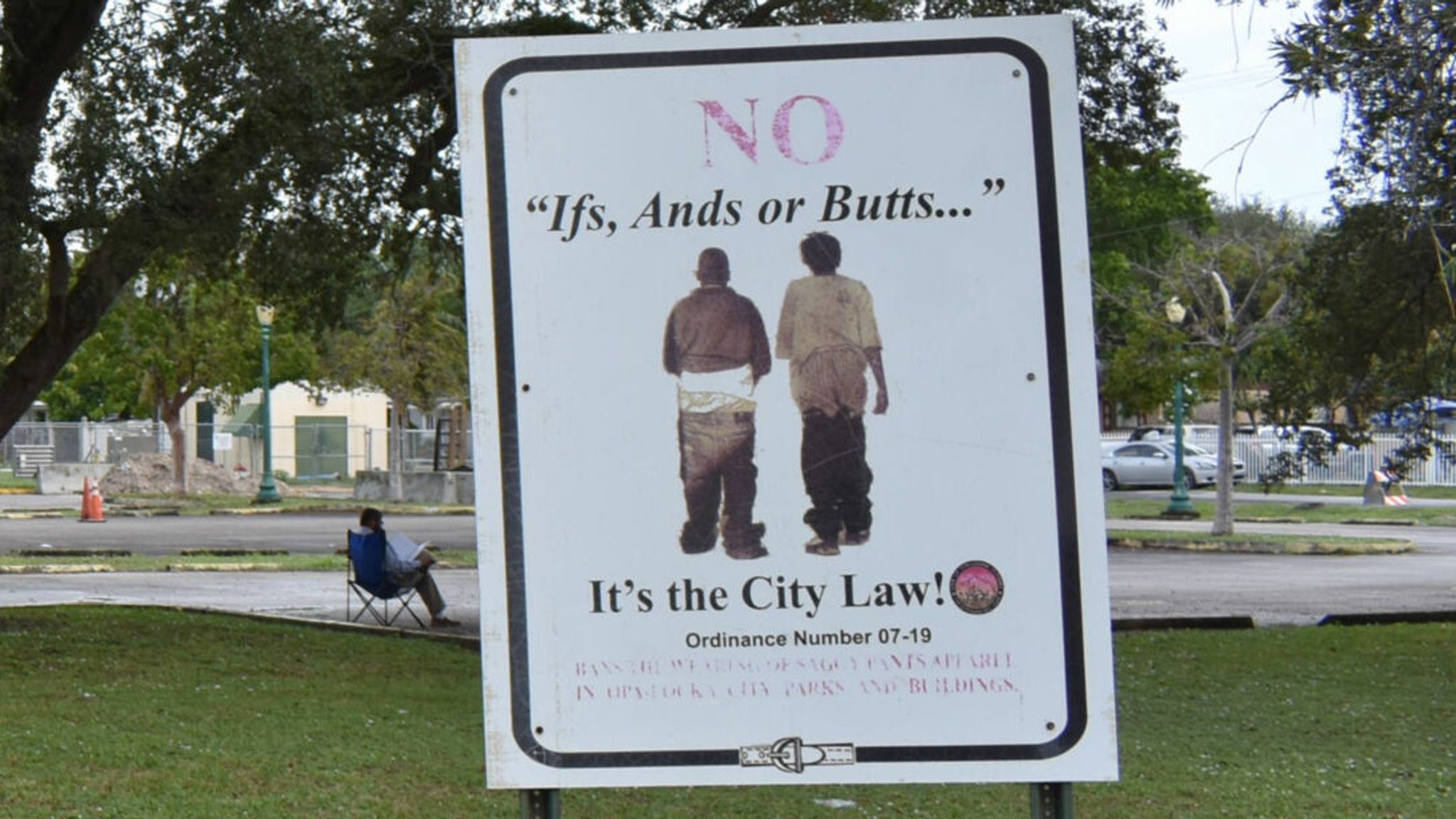
For 13 years, a law banning people from sagging their pants in public in the city of Opa-Locka in Miami-Dade County stood, with offenders caught “improperly dressed” either receiving fines or being sentenced to community service. Though activists complained the 2007 legislation that prohibited that kind of dressing in city buildings and parks unfairly targeted young Black men, an ordinance passed in 2013 further expanded the ban to include women and public spaces, the Miami Herald reports.“I was never in support of it [the saggy pants ban], even as a resident,” Vice Mayor Chris Davis told the news publication. “I felt it disproportionately affected a certain segment of our population, which is young, African-American men.”The only commissioner who voted against the repeal, Alvin Burke, was adamant the law was passed not “to target our young black men, but to uplift our young black men.”“As of today, we still have our young men walking around with saggy, baggy pants,” Burke added. “If y’all see fit to do away with it and just continue to let our young black men walk around into our buildings like that … then so be it.”The passing of the repeal comes in the wake of the ongoing protests against racial discrimination and excessive police use of deadly force that was spurred by recent happenings including the death of George Floyd. Over the past few months, activists have been calling for sweeping reforms to end systemic racism in the United States.“What better climate to do it in than the one that’s going on around the country centered on police reform and just looking at ways that we can make our public services more equitable,” Davis said. In a statement to the Miami Herald, the ACLU of Florida welcomed the repeal. The organization had previously condemned the 2007 legislation, calling it a “ridiculous waste of public resources” that would “impose overly harsh penalties for victimless behavior” with African Americans bearing the brunt. “Criminalizing the way someone wears their clothing serves no one. Similar ordinances have been pursued across the country and have only yielded heightened racial profiling by police and increased racial disparities in the criminal justice system,” the statement approving the repeal, said.“It is an affront to the constitutional principles of fairness, free expression, and due process of law,” the group added. “We’re glad the commissioners voted to repeal this ordinance. Our local leaders should be looking at ways to end discriminatory practices, not embolden them.” About 58% of Miami-Dade’s population is Black, Miami Herald reports.“Since its inception, this law disproportionately affected certain segments of our population, including Black and brown men and women,” a statement from the city said, according to CNN. “The Commission agreed to repeal the law opting for a less aggressive approach of educating our constituents to encourage proper dress.”Davis also told CNN: “You can’t pass a law to target any segment of a population. It has to be equitable. In Opa-locka, we’re a predominately African-American and Hispanic community. When you pass laws like that, they can seem predatory if not carefully implemented.”On Wednesday, however, the Opa-Locka City Commission voted 4-1 to repeal both the legislation and ordinance in its first reading. The repeal will officially take effect at another meeting where city commissioners will need to re-approve it.